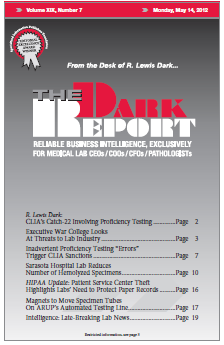LABS PUT SO MUCH EFFORT INTO SECURING electronic health records, that it’s easy to overlook the need to protect paper records. St. Joseph’s Medical Center in Stockton, California, learned this lesson the hard way recently when thieves stole more than 700 paper records from one of the hospital’s 23 patient service centers (PSC). The theft […]
To access this post, you must purchase The Dark Report.


